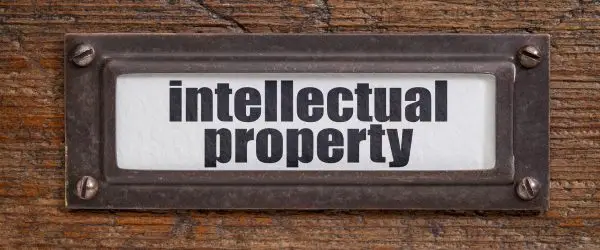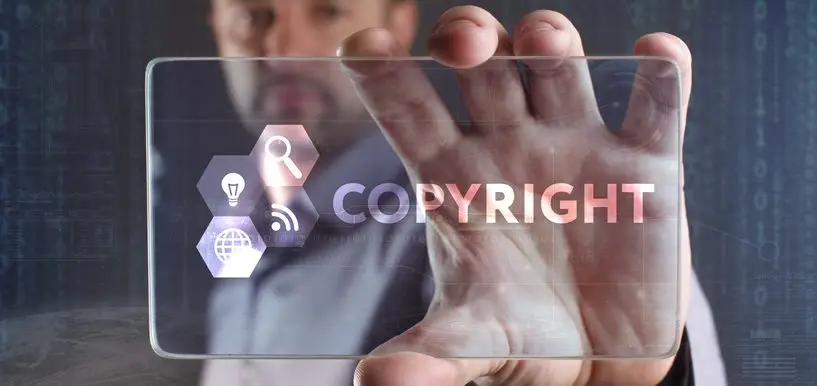
Amazon Sellers noticing Intellectual Property Complaints trend
Amazon Sellers must be prepared to receive intellectual property (IP) right complaints. Even if you source your products directly from a legitimate distributor or manufacturer. Amazon Sellers will eventually receive IP complaints.
Amazon Sellers that purchase their products directly from the manufacturer often receive intellectual property complaints from manufacturers. Manufacturers use Amazon’s lackadaisical Report Infringement page for their own purposes including:
- Legitimately enforcing their IP rights
- Improperly enforcing distribution agreements, and
- Improperly enforcing MAP agreements.
The people filing these reports are likely not the same people who sold you the product. The vast majority of intellectual property complaints asserted on Amazon against third party sellers are baseless. The Amazon Sellers that suffer Amazon account suspensions should never have had their Amazon account or their listing suspended.
Companies aggressively police their various Intellectual Properties for two main reasons
- Protect pricing;
- Protect their IP rights which can be lost if they are not enforced.

Brands Can Lose IP Rights if they Do Not Enforce Them
If the exclusivity of a trademark, logo, character, product, patent, trade secret or another piece of Intellectual Property is not actively enforced, it can lapse into public domain. If this occurs, the time and money the owner put into developing and retaining rights to the relevant item was for naught. Often, the philosophy of this policing is to shoot first and ask questions later. Companies find it easier to act indiscriminately, then hash out the details with each case as it arises, as opposed to doing research into each individual case of potential infringement they come across. Companies are often amicable to legitimate sellers. The companies are aware they have cast a broad net and may catch fish that have not longed for the canning factory. They will often cast you back to sea, as long as your paperwork is in order.
December 2018 Update by CJ:
For the last year or so, brands have caused countless Amazon account suspensions and countless Amazon listing suspensions. The vast majority of Amazon account suspensions and Amazon listing suspensions are based upon fraudulent complaints. The Rights Owners complaints are almost always baseless. Amazon Sellers’ accounts should never be suspended when the Seller is selling genuine products. Amazon Sellers should never have their listings suspended for baseless intellectual property complaints.Brands assert baseless intellectual property rights complaints to protect their prices.The suspension of Amazon Seller accounts and Amazon Seller listings are harmful to sellers and consumers alike.

Amazon Seller Policies that Sellers Must Know
Make sure that you review all of Amazon’s policies on infringement. Specifically, note that MAP pricing issues and selective distribution agreements are not generally enforced by Amazon. MAP pricing and distribution agreements are not generally enforced against Amazon Sellers because they are agreements between the suppliers and the retailers. Many times, brands will assert intellectual property rights complaints because they are unsuccessful at taking down Amazon sellers who are beating them with better prices.This should clearly not cause suspended Amazon account or suspended Amazon listings but it does.
The language for Amazon Sellers on Amazon’s Report Infringement page is as follows:
Exclusive or Selective Distribution: Amazon respects a
Manufacturer’s right to enter into exclusive distribution agreements
for its products. However, violations of such agreements do not
constitute intellectual property rights infringement. As the
enforcement of these agreements is a matter between the
manufacturer and the retailers, it would not be appropriate for
Amazon to assist in enforcement activities.
If you are selling an authentic product in the exact condition as listed on Amazon, your business practice likely does not constitute intellectual property infringement. Your Amazon Sellers’ account should not be suspended even if you lack the brand’s approval. Your sales are protected under the First Sale Doctrine. Under the First Sale Doctrine, your Sellers’ Account should never be suspended if the consumer is receiving the same product from you that he or she would receive from the brand. Your listing is likely consistent with both the Nominative Fair Use and the First Sale Doctrine which protect your rights as a reseller.
Essentially, if your products are legitimately sourced and sold in unaltered condition, you are protected by the law outlined in these two doctrines. However, the best practice is to be prepared to fight these intellectual property complaints before they ever arise.

Private Label Amazon Sellers Protecting their Brands
If you are a Private Label Amazon Seller, you should take multiple steps to protect your investment and your brand.
First, obtain your trademark. File with the USPTO. Private Label Amazon sellers can file for trademark protection themselves or hire a law firm to do it for them. We suggest you try yourselves first. It is not very difficult for an Amazon Private Label Seller to file.
Second, All Private Label Amazon Sellers should apply for Amazon’s Brand Registry.
Third, use WIPO (the World Intellectual Property Organization) to obtain some protection in every country where you sell and wherever you source.
Private Label Amazon Sellers should actively police their Intellectual Property rights. That is how an organization actively retains them. If an IP right collects dust on a shelf then is suddenly brought to light it may be more difficult to enforce your IP rights. Your IP rights could, in certain circumstances, lapse into the public domain.
Private Label Amazon Sellers should strive to be as civil as possible. The majority of infringers are often ignorant of their faults. Start with Cease and Desist letters. Be sure to respond promptly to all communications. People naïve in the ways of IP and business are likely anxious, which could unneeded conflict. Once you have exhausted all means of amicable resolution, then you should escalate to asserting complaints on Amazon where you might put another Amazon Seller out of business. Private Label Amazon Sellers should exhaust all remedies before considering litigation.
To assist yourself in all aspects of this process, be sure to keep thorough records. All communications should be archived. Ensure that any licenses and/or agreements are up to date, and valid. Be willing to negotiate. As the old saying goes, “an unbending tree is easily broken.” Common resolutions we have encountered include:
- Allowing the Infringer to sell the last of their stock, then to never sell the infringing products again.
- Buying the stock from the Infringer, so that you may sell it yourself.
- Developing a licensing deal where you are paid royalties.
- Simply have the Infringer to agree to not sell, and destroy their inventory.
Amicable resolutions benefit you in the long run. Creating a bloody swath through the e-commerce world can damage your reputation and lead to a consortium of antagonists…never forget how easy it is for anyone to assert complaints on Amazon or have their friends and family purchase your goods and then leave awful reviews and demand refunds.
Purely Baseless IP Complaints
Imagine that you are a seller and have all the proper intellectual property registrations for your brand in each country where you are promoting your e-commerce business. Regrettably, even though you have used all the proper channels to protect your brand and intellectual property rights, you are still susceptible to baseless intellectual property complaints on Amazon.
We have seen many cases in which a baseless intellectual property rights complaint is filed over a deceptively similar Trademark. The difference between the two Trademarks can literally be just one character space between two words. Due to this rights owner complaint, one of our clients was suspended from selling their Private Label branded products on Amazon until the dispute was resolved with the other rights owner. Although we ended up winning this case and getting the sellers account reinstated, the battle for reinstatement took a toll on our client’s business. Amazon generally stands on the sidelines while the parties work out such disputes. Thus whenever this happens it is best to promptly act to address any complaints and to protect your hard-earned brand and business reputation.

Takeaways for Amazon Sellers
Intellectual property complaints can be intimidating for Amazon Sellers. If you receive an intellectual property complaint, remember to be prepared to protect yourself. Just because someone says you are infringing on their IP rights obviously does not make that true. The law protects sellers in many instances. Properly registering your intellectual property rights also provides a strong line of defense against infringers, but it is up to sellers to enforce these rights. These rights can be used as both a sword (to stop others from infringing on your IP rights) and a shield ( to fight baseless infringement claims made against you).
This article was written by Vincent Famularo and Sean Law. They are both paralegals with Rosenbaum Famularo, P.C., the law firm behind AmazonSellersLawyer.com. Like all of the writers at the firm, Vin and Sean are both college graduates and work together with our team in our Long Beach, New York office. Vin earned his BS degree in Political Science from Sacred Heart University in Fairfield, CT in 2012. Vin joined Rosenbaum Famularo, P.C., in 2015. Sean graduated from Keene State College in 2014 with a BA degree in film production. Sean has ample experience with writing and law. He joined Amazon Sellers’ Lawyer in October of 2017.
